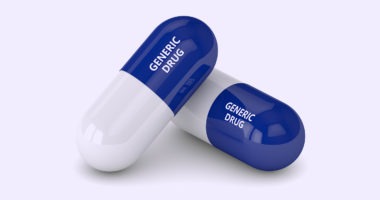President Biden Proposes New Agency for Pharma Innovation
The Biden Administration has proposed $6.5 billion in funding to establish a new federal agency within the National Institutes of Health to drive bio/pharmaceutical innovation in areas such as cancer, diabetes, Alzheimer’s disease, and other areas in need of health breakthroughs. What’s behind the proposal?
Seeking to stimulate bio/pharmaceutical innovation
Last week (April 9, 2021), the Biden Administration released its budget proposal for discretionary spending for fiscal year (FY) 2022, which emphasizes an increase in research and development overall, including for bio/pharmaceuticals. The budget proposal is just that, a proposal to outline the White House’s budget priorities to Congress, which has authority to appropriate federal spending and funding.
As part of a proposal for $51 billion in funding to the National Institutes of Health (NIH), President Biden is calling for $6.5 billion to create a new federal agency, the Advanced Research Projects Agency for Health (ARPA-H), within the NIH. “With an initial focus on cancer and other diseases such as diabetes and Alzheimer’s, this major investment in Federal research and development would drive transformational innovation in health research and speed application and implementation of health breakthroughs,” said a April 9, 2021 briefing document on the President’s FY 2022 budget proposal provided to members of Congress by Shalanda Delores Young, Acting Director of the Office of Management and Budget.
Although short of details thus far, the new agency, if authorized and created, would be modeled after two existing research agencies: the Department of Defense’s Defense Advanced Research Projects Agency and the Department of Energy’s Advanced Research Projects Agency. If created, the new agency would become one of the NIH’s largest bodies and be equal in size to the NIH’s National Cancer Institute, a main research body of the NIH. As part of the budget process, federal agencies and bodies provide their “best professional judgment” to the President and Congress on the optimum funding needed. For FY 2022, the National Cancer Institute specified that $7.6 billion funding would be an optimum funding level.
EU moves forward with bio/pharmaceutical proposals
The European Union (EU) is also moving forward with new research programs to address specific diseases, such as cancer, through Europe’s new Beating Cancer Plan.
The European Federation of Pharmaceutical Industries and Associations, which represents innovator, research-based pharmaceutical companies in Europe, the European Cancer Patient Coalition (ECPC) and the European Cancer Organization have supported the plan, which includes progress tracking, such an Inequalities Registry, a Cancer Plan Implementation Group, and an enhanced European Cancer Information.
In taking forward these proposals, EFPIA and other groups urge emphasis on early implementation consistent with the principles of the European Cancer Dashboard. A key role for the European Parliament, and its Special Committee on Beating Cancer, is identified in agreeing core common indicators for dashboards supporting Europe’s Beating Cancer Plan, alongside patients and the oncology community.
At the European Health Forum Gastein in October 2020, the EFPIA presented concepts and agreed principles for what such a “dashboard” approach to support implementation of Europe’s Beating Cancer Plan could consist of. “There is now a great need to rapidly implement the Plan, especially in view of devastating setbacks to cancer care caused by COVID-19,” said the EFPIA in a February 3, 2021 statement. “We believe the principles and approach we suggested last year [2020] can drive the implementation of the dashboard elements of the Plan and bring visibility of the Plan’s progress to the European public.
The dashboard principles include: (1) be public facing, so the plan is easy to understand and use and all EU citizens can track the progress of the plan; (2) developing indicators in cooperation with stakeholders, including EU member state representatives, the European Parliament, the European Commission and relevant EU agencies, oncology experts, patients, healthcare professions, and the healthcare industry; (3) building on pre-existing work, such as the European Cancer Information System, the European Core Health Indicator series and Health at a Glance exercise; (4) be evidence based and continually evolve; and (5) cover the core areas of cancer care.”
“With the Beating Cancer Plan, Europe launches a new era for cancer care and cancer patients,” said Nathalie Moll, Director General of EFPIA, in the EFPIA February 3, 2021 statement. “We should all be ambitious and accountable. That’s why we as the bio-pharmaceutical industry are committed to working with all stakeholders on the concept of a Cancer Dashboard where we set concrete and measurable targets to prevent, treat and cure cancer. New innovation in personalized oncology, gene therapies and combination therapies require innovative health systems, long-term investment and strong partnerships. We are looking forward to working with all stakeholders to achieve tangible progress for today’s and tomorrow’s cancer patients, keeping the EU at the forefront of research and innovation.”






